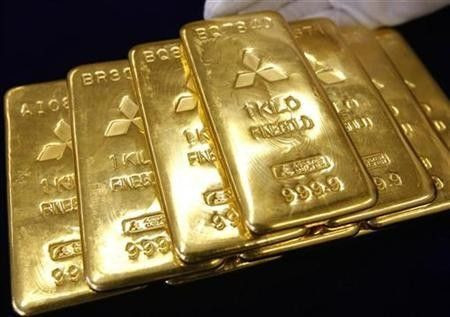Gold Demand Plunges In Top Global Markets: Will Emerging Markets Take Up Slack?

Gold prices on Monday resumed last week's decline, a retreat worsened by unusually weak demand from China and India, the two largest gold consumers, that has extended for several months, according to a Capital Economics note.
Nevertheless, the research group expects that Chinese demand will soon recover thanks in part to a renewed escalation of the euro-zone crisis, which will "spark strong safe haven flows for gold." The report predicts that the price of gold will increase from its current low around $1,620 per ounce to $2,000 by the end of the year.
Gold prices have been declining over the past year after increasing seven-fold in the preceding decade. While it has proven more resilient than many other commodities suffering from a drop in demand in 2012, gold's current price still remains 10 percent below its peak in February of this year.
Capital Economics previously highlighted three factors behind gold's struggling price point: returning confidence in the dollar, markets treating the euro-zone crisis as a peripheral issues "rather than a threat to the survival of a single currency," and German bunds retaining safe-haven status.
But a new report from Thomson Reuters on Thursday indicated that weakened demand from China and India in increasingly important as a fourth factor. Data from the World Gold Council shows that Chinese demand decreased 7.1 percent from its position last year, falling 10 percent from the first quarter.
India's demand, meanwhile, the world's largest market for gold, dropped 13.2 percent from the first quarter, showing a massive 38 percent decline from its position last year.
The World Gold Council cites numerous factors that have allowed the "challenging economic climate" for gold to persist, including the weakness in the rupee, monsoon weather conditions, government efforts to curb gold imports, and a general slowing of the Indian economy.
Despite recent trends, the Capital Economics report offered three reasons why India and China weakened demand will not, at least on their own, prevent the price of gold from making a comeback.
First, anticipating the Eurozone crisis to drive "one or more countries" out of the union over the next 16 months, safe haven demand would then increase in Europe.
Secondly, the group predicts that any economic slowdown in both countries is winding to a close, meaning that demand in China should recover and India's will at the very least remain stable, with Chinese demand being buoyed by a rising gold price from the fallout of the euro zone crisis.
Third, major central banks in China, the euro zone, India, Japan, the United Kingdom and most likely the United States will continue to loosen monetary restrictions.
The price of gold for the most actively traded contract in New York slipped to $1,617.90 in Monday midday trading.
© Copyright IBTimes 2025. All rights reserved.






















